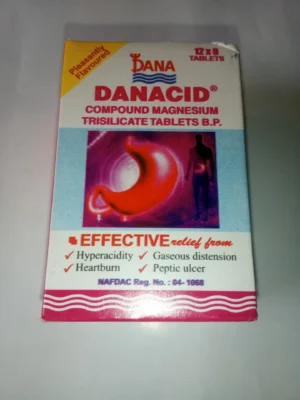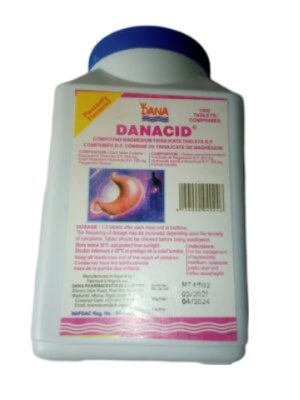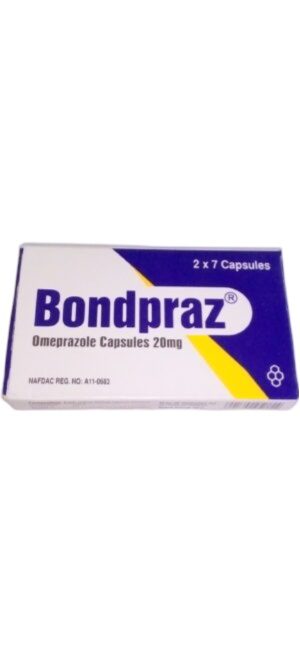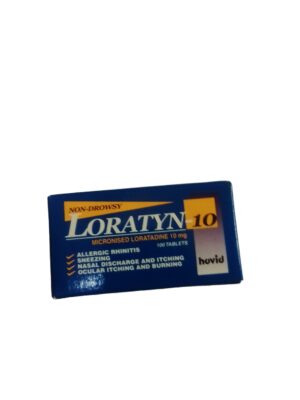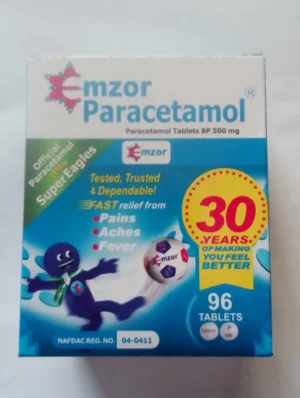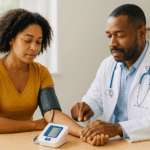Women’s Health, Made Simple: A Simple Guide for Healthy Living

Please note: This article gives basic advice only. If you’re feeling unwell or dealing with a specific issue, please don’t self-diagnose. Talk to one of our pharmacists online — we’ll listen, help you understand what’s happening, and recommend the safest medication for you.
Contents
- Introduction — Why Your Health Deserves Extra Attention
- The Foundations of Good Health
- Eat to Nourish, Not Just to Fill Up
- Move Your Body — Even a Little Counts
- Sleep & Stress — The Twin Pillars of Balance
- Routine Check-Ups — Your Health’s Safety Net
- Common Women’s Health Concerns & What to Do
- A. Period Pain & PMS
- B. Heartburn & Acid Reflux
- C. Colds, Allergies & Stuffy Nose
- D. Headaches & Body Aches
- Women’s Multivitamins — Balanced Everyday Support
- When to See a Doctor Fast
- Safe Use Tips
- Final Thoughts
Introduction — Why Your Health Deserves Extra Attention
Every woman’s body goes through unique changes — from puberty and monthly cycles to pregnancy, motherhood, and menopause. Each stage brings new needs and questions:
- Why am I feeling so tired lately?
- What can I do for these cramps?
- How can I eat better when I barely have time?
- Which vitamins or supplements actually make a difference?
With so much information out there, it can be confusing to know what really works and what’s safe.
This guide breaks things down simply — with clear explanations, caring advice, and recommended medication that can help you stay strong, energetic, and healthy every day.
The Foundations of Good Health
Good health doesn’t come from one pill or diet; it’s built on simple habits done consistently. Let’s start with the basics that form the foundation of your wellbeing.
Eat to Nourish, Not Just to Fill Up
When life gets busy, it’s easy to grab whatever is closest — bread, rice, snacks — and call it a meal. But these foods alone don’t keep your energy steady or your hormones balanced.
Your body needs a mix of nutrients to keep blood sugar stable and your mind clear.
Try this simple rule:
- Fill half your plate with fruits or vegetables (for vitamins and fiber).
- Add a quarter of healthy proteins — beans, eggs, fish, chicken, or lean meat.
- The last quarter should be whole grains like oats, brown rice, or wheat.
- Use small amounts of good oils (like olive or groundnut oil).
And don’t forget water — dehydration can make you feel tired or moody without realizing why.
Move Your Body — Even a Little Counts
Exercise doesn’t mean lifting heavy weights or going to the gym every day. For many women, it’s just about keeping the body active and joints flexible.
Movement improves blood flow, strengthens bones, eases stress, and can even reduce period cramps.
Start small:
- A 20–30 minute walk most days.
- Light stretches after waking up or before bed.
- A few squats or lunges during chores or breaks.
Consistency matters more than perfection.
Sleep & Stress — The Twin Pillars of Balance
Sleep isn’t a luxury — it’s how your body repairs and recharges. When you don’t sleep well, hormones go off-balance, cravings rise, and your mood suffers.
Try:
- Sleeping and waking at the same time daily.
- Avoiding screens an hour before bed.
- Keeping your bedroom dark and cool.
If you can, build short “reset breaks” into your day — a few deep breaths, a short walk, or 5 minutes of quiet. It really does make a difference.
Routine Check-Ups — Your Health’s Safety Net
Even if you feel fine, a yearly check-up helps catch issues like low blood count, high blood pressure, or thyroid imbalance early — before they become big problems.
Keep track of your menstrual cycle, note any major changes, and do regular breast self-exams. Prevention is always easier than treatment.
Common Women’s Health Concerns & What to Do
Now let’s look at the issues most women face from time to time — what causes them, what helps, and which medicines you can trust from our pharmacy shelves.
A. Period Pain & PMS
Almost every woman knows the discomfort that comes with her period — cramps, mood changes, bloating, backache, and fatigue. But did you know period pain happens because your uterus contracts to push out its lining? For some women, this cramping can be intense.
What can help:
- Apply a warm compress or take a warm bath — heat relaxes the muscles.
- Gentle walking or stretching increases blood flow and reduces pain.
- Eat light, balanced meals and reduce salty foods near your period (they can worsen bloating).
- When pain interferes with your day, the right pain relief or antispasmodic can bring quick comfort.
Recommended Medication:
💡 See a doctor if cramps become unusually severe or your bleeding changes suddenly.
B. Heartburn & Acid Reflux
That burning feeling after spicy or late-night meals? That’s acid reflux — when stomach acid escapes upward. It’s common and treatable.
What can help:
- Eat smaller portions and avoid lying down right after meals.
- Sleep with your head slightly elevated.
- Limit very oily, peppery, or citrus-heavy foods.
- Over-the-counter antacids bring quick relief, while acid-reducing medicines (PPIs) help longer term.
Trusted options:
⚠️ Go for a medical check-up if you notice black stools, vomit blood, or have chest pain.
C. Colds, Allergies & Stuffy Nose
Whether it’s a common cold or allergy season, nasal congestion and sneezing can make anyone miserable.
What can help:
- Rest, hydrate, and take warm fluids.
- For blocked noses, try saline drops or sprays — they’re gentle and safe for everyone.
- Antihistamines calm sneezing and itchy eyes.
- Steroid nasal sprays help if symptoms are frequent.
Effective medication
D. Headaches & Body Aches
A long day, dehydration, missed meals, or stress can all trigger headaches and general aches.
What can help:
- Drink water and have something light to eat.
- Adjust your posture, stretch your neck and shoulders.
- Rest your eyes and reduce screen brightness.
- Pain relievers can provide fast comfort — but don’t overuse them.
Recommended medicines:
Women’s Multivitamins — Balanced Everyday Support
Many women today lead busy lives — juggling family, work, and responsibilities — and it’s not always easy to eat perfectly or rest enough. That’s where vitamins and supplements can help fill the gaps. If you often skip meals or have a hectic schedule, a women’s multivitamin ensures you’re not missing key nutrients like iron, B vitamins, calcium, and iodine.
Recommended Supplements:
When to See a Doctor Fast
Some issues need professional help right away:
- Very painful or one-sided lower tummy pain
- Heavy bleeding, missed periods, or fainting
- Chest pain, black stools, or vomiting blood
- Persistent fever or shortness of breath
- A new lump or nipple changes in your breast
If you’re ever unsure, talk to our pharmacists online first — we’ll tell you what to do next.
Safe Use Tips
- Always read medicine labels — many cold or pain products already contain paracetamol.
- Take ibuprofen or naproxen with food to protect your stomach.
- Don’t use nasal sprays for more than 5 days straight.
- Separate antacids from other tablets by at least 2–3 hours.
- Pregnant or breastfeeding? Ask us first before taking anything new.
Final Thoughts
Taking care of yourself shouldn’t feel complicated or expensive. The truth is, small daily habits — eating well, sleeping enough, and using safe, effective medicines when needed — make a huge difference.
And you don’t have to figure it all out alone. Whether you’re choosing a supplement, managing cramps, or wondering what to take for heartburn, our pharmacists are always here to help — friendly, approachable, and ready to guide you toward better health.
You may also like
- A Practical Guide to Weight Management, Weight Loss, and Nutrition
- A Guide to Preventive Health & Everyday Wellness
- Women’s Health, Made Simple: A Simple Guide for Healthy Living
- Men’s Health, Made Simple: A Guide to Feeling and Living Better
- A Simple Guide to a Healthy Pregnancy: What Every Expecting Mother Should Know


